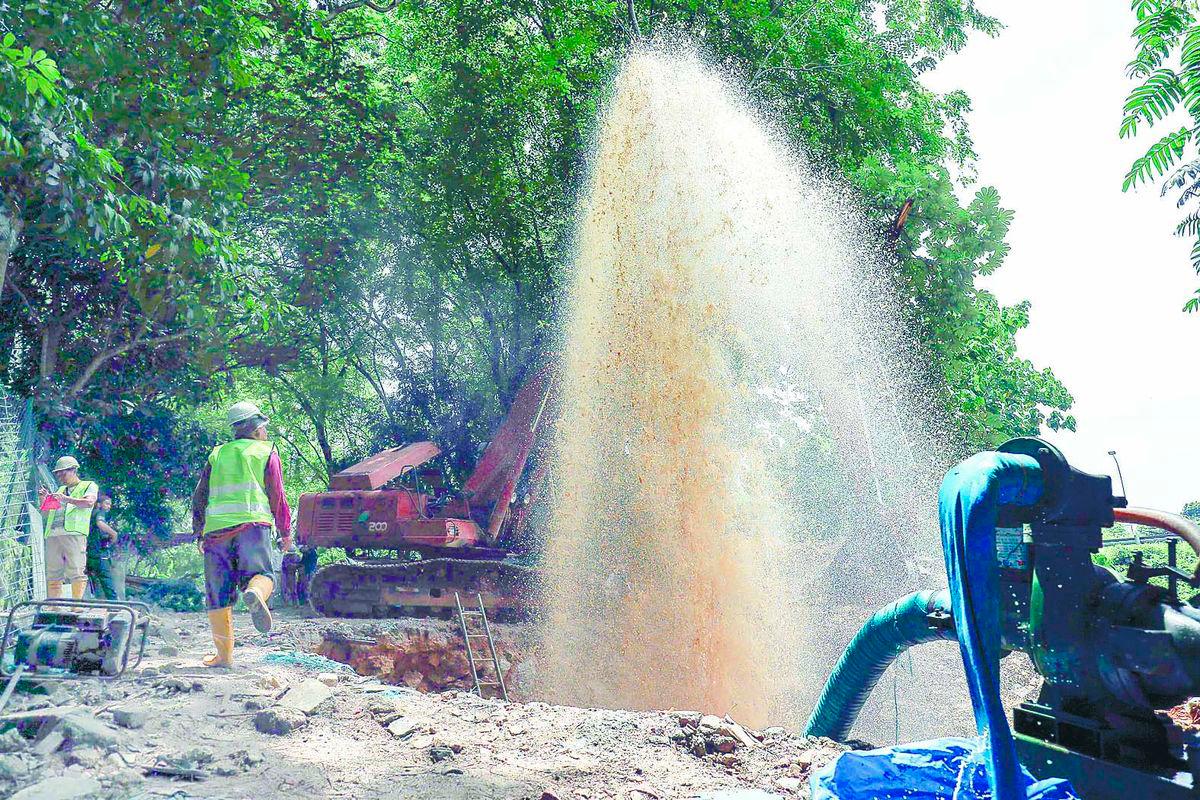PETALING JAYA: Non-revenue water (NRW) in Selangor has continued to decline, dropping from 31% in 2017 to 27% in 2024, as Pengurusan Air Selangor Sdn Bhd (Air Selangor) steps up its infrastructure investments and operational initiatives.
Air Selangor CEO Adam Saffian Ghazali told theSun the state’s NRW rate remains below the national average, reflecting effective water management strategies.
“On a national level, according to Deputy Prime Minister Datuk Seri Fadillah Yusof, who is also the Energy Transition and Water Transformation minister, Malaysia’s NRW stood at 37.1% as of 2023,” he said.
However, Selangor’s NRW rate remains above the globally recommended threshold of 25%, the benchmark for efficient water utilities in developing countries, as set by the World Bank and the International Water Association.
The current 27% NRW rate translates to a daily loss of 298.36 million litres of treated water, prompting Air Selangor to target a reduction to 25% by 2030.
This will be achieved through pipe replacement projects and a public reporting campaign via its mobile app and website.
In addition to technology upgrades, Adam Saffian said the company plans to increase manpower to strengthen leak detection cabability.
He added that limited resources within its Active Leakage Control (ALC) team remain a challenge in addressing NRW effectively.
“The current 261 ALC personnel are not enough to combat NRW and further bring down leakage rates.
“We plan to raise the number of inspectors from 187 to 210 to boost detection efforts across the pipe network in Selangor, Kuala Lumpur and Putrajaya, covering more than 160,000 potential leak cases.”
He added that Air Selangor also aims to instal pressure transient technology on main pipelines to detect leaks at an earlier stage.
“This will allow immediate repair works to be carried out, preventing prolonged supply disruptions. The technology is already in use by water operators in developed countries such as Singapore, Australia and the United Arab Emirates.”
As of March last year, 636.55km of old pipelines have been replaced across Selangor.
“We aimed to increase pipe replacement to 300km annually starting in 2024, ramping up to 400km per year from 2034 onwards, to fully replace 5,000km of asbestos cement pipes within the next 15 years.”
Adam Saffian said despite ongoing NRW challenges, with capital investment for physical and commercial loss reduction alone reaching up to RM450 million annually, Air Selangor continues to see positive developments.
It is the only utility company in Malaysia inducted into the Leading Utilities of the World (LUOW) network.
“NRW was one of the core innovation areas we highlighted during our LUOW induction presentation at the Global Water Summit in Paris recently.”
Adam Saffian said under its 30-year business plan, Air Selangor is leveraging its own capital expenditure to implement key initiatives that will enhance operational efficiency across its service areas.
“The plan, which spans from Operating Period 1 in 2019 to Operating Period 10 in 2049, outlines a projected total investment of RM35 billion.”
In recognition of its NRW reduction efforts, Air Selangor received a RM326 million remuneration incentive under the National NRW Programme.
“This was awarded in recognition of our consistent and effective work in reducing the NRW rate to 27.7% during the 2023 evaluation period. Since 2019, we have received a total of RM688.68 million in matching grants from the federal government,” he said.









